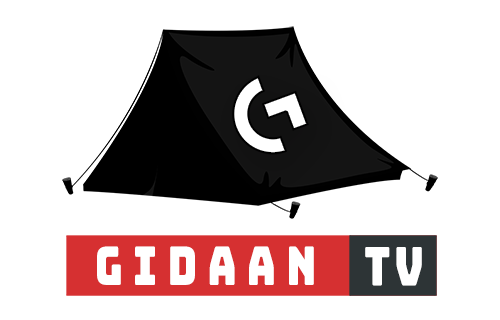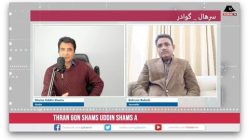Poverty, an indubitably grave global challenge, has long been recognized in its absolute form, impacting countless individuals and communities worldwide. However, while absolute poverty is undeniably detrimental, it is the perils of intellectual poverty that overshadow its consequences. Intellectual poverty encompasses the absence of critical thinking skills, limited access to education, and an end of opportunities for intellectual growth. In the essay an overview of assertions towards how intelligible poverty poses a greater danger than absolute poverty by perpetuating a cycle of ignorance, impeding societal progress, restricting individual growth, and giving rise to a host of adverse outcomes. By delving into the implications of intellectual poverty, we can gain a profound understanding of the urgency to address this multifaceted issue.
One of the primary ramifications of intellectual poverty is the perpetuation of ignorance through the curtailment of knowledge, critical thinking, and education. In societies plagued by absolute poverty, resources are scarce, making it arduous for individuals to acquire a proper education. This lack of education contributes to the perpetuation of ignorance, entrapping individuals in an unrelenting cycle of poverty. Moreover, intellectual poverty stifles the development of analytical and critical thinking skills, rendering individuals more vulnerable to misinformation, manipulation, and the propagation of false ideologies. This ignorance holds profound consequences for society as a whole, hindering progress, fueling social divisions, and reinforcing existing power structures.
Furthermore, intellectual poverty constrains self-reflection and personal growth. It impedes individuals from questioning prevailing norms and assumptions, thereby hindering the development of fresh ideas and perspectives. Intellectual poverty suppresses intellectual curiosity, innovation, and creativity, resulting in stagnation and the perpetuation of outdated ideologies. Conversely, individuals endowed with intellectual wealth possess the ability to think critically, challenge the status quo, and contribute to the advancement of knowledge and society. They are more inclined to question social injustices, advocate for positive change, and promote inclusivity.
In addition to its impact on individuals, intellectual poverty presents a substantial hurdle to societal progress. A society cannot flourish if its members lack the knowledge and skills necessary for meaningful contributions. Without intellectual enrichment, innovation, creativity, and progress in fields like science, technology, arts, and social reforms become severely restricted. Intellectual poverty curtails the development and application of new ideas and solutions, which are crucial for addressing complex global challenges such as climate change, inequality, and healthcare disparities. By overlooking the issue of intellectual poverty, societies risk falling behind in an ever-evolving world.
Moreover, intellectual poverty often manifests itself in limited access to quality healthcare and basic sanitation. Individuals deprived of intellectual wealth may lack the knowledge to recognize disease symptoms, understand preventive measures, or make informed decisions regarding their health. Consequently, public health outcomes suffer, hindering progress towards healthier and more equitable societies. Addressing intellectual poverty necessitates not only providing access to healthcare but also empowering individuals with knowledge and skills to make informed health-related choices. By promoting health literacy and education, societies can enhance overall well-being and reduce the burden of preventable diseases.
Additionally, intellectual poverty perpetuates social inequalities and discrimination. It reinforces existing power structures, as those possessing intellectual wealth tend to dominate decision-making processes. This marginalizes the voices and perspectives of the intellectually impoverished, exacerbating social divisions and impeding inclusive development. To create a fair and just society, it is imperative to address the underlying factors contributing to intellectual poverty, such as unequal access to education, discrimination based on socioeconomic status, and cultural biases. Promoting equal opportunities for intellectual growth and ensuring that all individuals have a voice in shaping societal policies and practices are crucial steps towards achieving social justice.
Moreover, intellectual poverty impedes economic progress. Without access to education and the development of critical skills, individuals are less likely to find employment opportunities that can lift them out of poverty. This perpetuates a cycle of economic deprivation, hindering societal advancement and perpetuating disparities between the intellectually impoverished and the intellectually affluent. Breaking this cycle requires targeted interventions that prioritize education, vocational training, and the promotion of entrepreneurship. By equipping individuals with the necessary skills and knowledge, societies can create pathways for economic empowerment and sustainable development.
While targeted interventions can help alleviate absolute poverty by providing access to basic necessities and establishing social safety nets, breaking the cycle of poverty necessitates addressing intellectual poverty. Providing access to quality education, promoting critical thinking skills, and fostering intellectual growth are indispensable components of empowering individuals to transcend the shackles of poverty. Education plays a pivotal role in equipping individuals with the necessary skills and knowledge to improve their lives. By investing in education and enhancing access to educational resources, societies can uplift the intellectually impoverished and enable them to become active participants in their own development. Quality education not only imparts knowledge but also fosters critical thinking, problem-solving, and creativity, equipping individuals with the tools to navigate and thrive in an increasingly complex world.
Furthermore, tackling intellectual poverty requires addressing systemic barriers that perpetuate inequality. This involves challenging societal norms, investing in infrastructure, and providing equal opportunities for intellectual growth. By promoting inclusivity, diversity, and equity, societies can ensure that no individual is left behind due to their intellectual circumstances. Governments, NGOs, and individuals must collaborate to create an environment that nurtures intellectual curiosity, encourages lifelong learning, and provides avenues for intellectual advancement. This includes measures such as comprehensive education reforms, equitable distribution of educational resources, mentorship programs, and community engagement initiatives.
Additionally, intellectual poverty can have profound social and political implications. In societies where critical thinking skills are lacking, individuals are more susceptible to manipulation by political leaders and ideologies. This can result in the erosion of democratic values, the suppression of dissent, and the perpetuation of oppressive regimes. Addressing intellectual poverty is crucial for fostering informed citizenship and promoting active participation in democratic processes.
Moreover, intellectual poverty hinders societies from harnessing the full potential of technological advancements. In a rapidly evolving digital era, individuals without access to information and technological literacy are at a disadvantage. Bridging the digital divide and providing digital literacy education can empower individuals to navigate the digital landscape, seize opportunities for economic growth, and engage in the global knowledge economy.
Furthermore, intellectual poverty poses a significant obstacle to addressing environmental challenges. Without critical thinking skills and access to environmental education, individuals may not fully comprehend the impact of their actions on the environment. By promoting environmental literacy and fostering a culture of sustainability, societies can equip individuals with the knowledge and skills needed to make informed choices and contribute to a more sustainable future.
Media literacy and information literacy are essential components of addressing intellectual poverty in the digital age. By equipping individuals with the skills to critically evaluate information, discern credible sources, and navigate the media landscape, societies can combat misinformation, promote media literacy, and empower individuals to make informed decisions.
To address intellectual poverty, it is crucial to prioritize access to quality education, promote critical thinking skills, and foster intellectual growth. By investing in education and enhancing access to educational resources, societies can empower the intellectually impoverished and enable them to become active participants in their own development. Additionally, challenging systemic barriers that perpetuate inequality and restrict intellectual advancement is vital. This involves promoting inclusivity, diversity, and equity, and providing equal opportunities for intellectual growth.
Governments, NGOs, and individuals must collaborate to create an environment that nurtures intellectual curiosity, encourages lifelong learning, and provides avenues for intellectual advancement. Comprehensive education reforms, equitable distribution of resources, mentorship programs, and community engagement initiatives are among the measures that can effectively address intellectual poverty.
In an increasingly complex and interconnected world, overcoming intellectual poverty is not just a moral imperative but also a necessity for sustainable development and a more equitable future. By prioritizing intellectual enrichment and empowering individuals with the tools to think critically and challenge prevailing norms, societies can break the cycle of poverty and pave the way for a more prosperous and inclusive world. Only by recognizing the urgency and taking concerted action can we address the multifaceted perils of intellectual poverty and unlock the full potential of individuals and societies alike.
In conclusion, intellectual poverty presents a greater peril than absolute poverty due to its wide-ranging consequences on individuals, societies, and global development. While absolute poverty is undoubtedly harmful, intellectual poverty perpetuates ignorance, hampers progress, restricts personal growth, and leads to a myriad of adverse effects. It impedes access to education, critical thinking skills, and knowledge, thus perpetuating a cycle of ignorance that is difficult to escape. Intellectual poverty stifles innovation, creativity, and the development of new ideas, hindering societal advancement and leaving societies ill-prepared to tackle complex challenges. It also exacerbates health disparities, reinforces social inequalities, inhibits economic progress, and undermines democratic values.
Addressing intellectual poverty requires a multi-faceted approach that prioritizes equitable access to quality education, promotes critical thinking skills, and fosters intellectual growth. It also necessitates challenging systemic barriers that perpetuate inequality and restrict intellectual advancement. By investing in education, enhancing access to educational resources, and fostering inclusivity, diversity, and equity, societies can empower the intellectually impoverished and enable them to become active participants in their own development. Collaboration between governments, NGOs, and individuals is crucial in creating an environment that nurtures intellectual curiosity, encourages lifelong learning, and provides avenues for intellectual advancement.
Overcoming intellectual poverty is not only a moral imperative but also a necessity for sustainable development and a more equitable future. By recognizing the urgency of the issue and taking concerted action, we can address the multifaceted perils of intellectual poverty and unlock the full potential of individuals and societies worldwide. Only through collective efforts can we break the cycle of intellectual poverty, foster critical thinking, and pave the way for a more prosperous, inclusive, and enlightened world.








Add comment